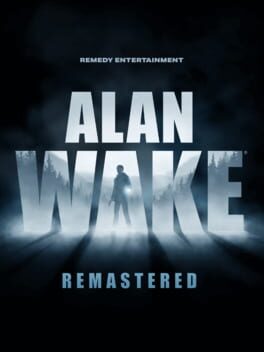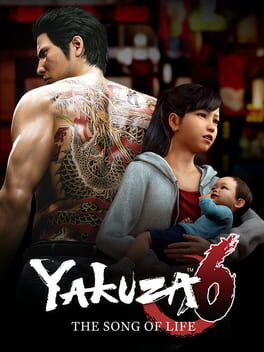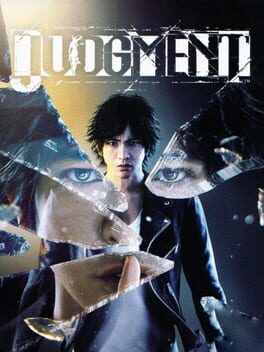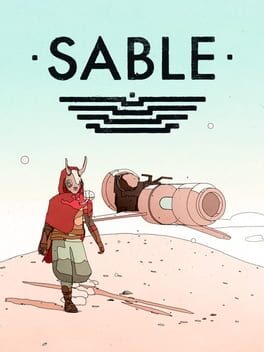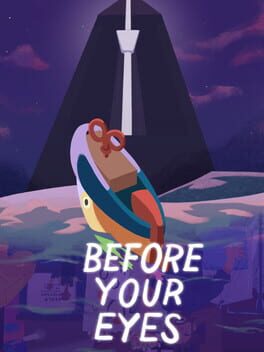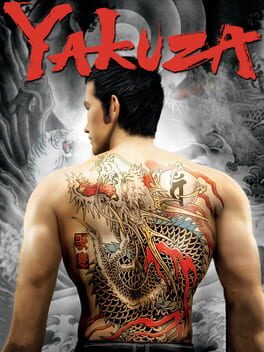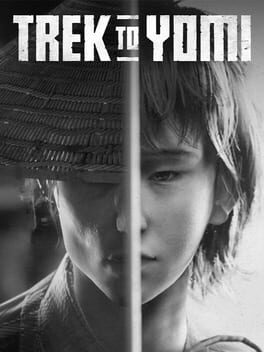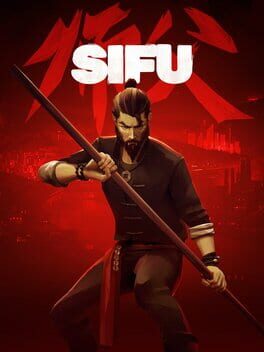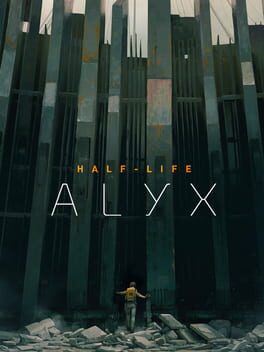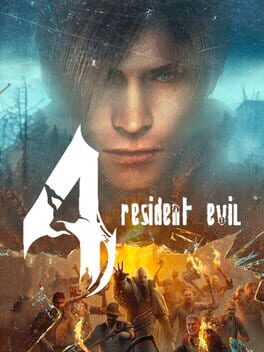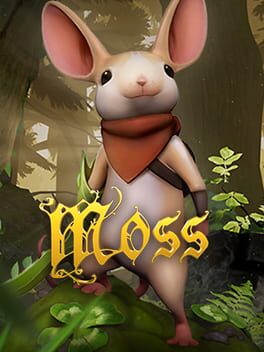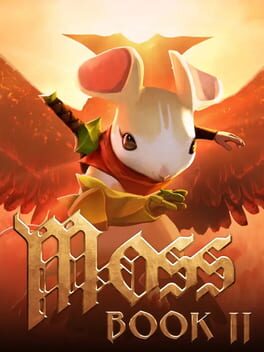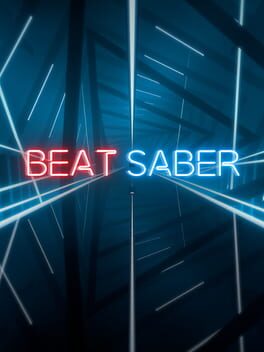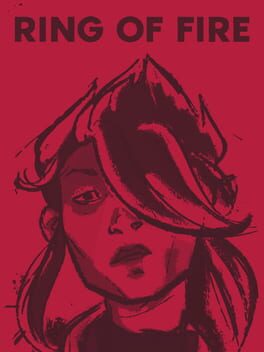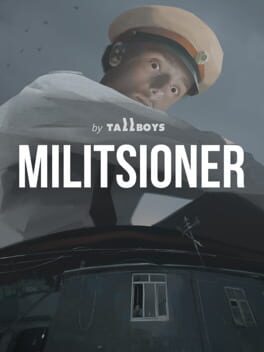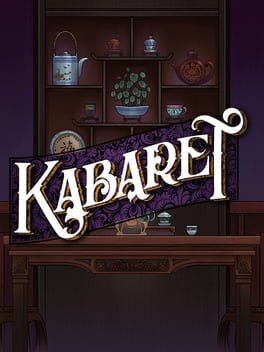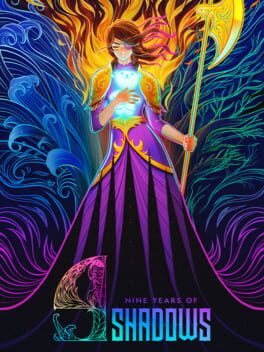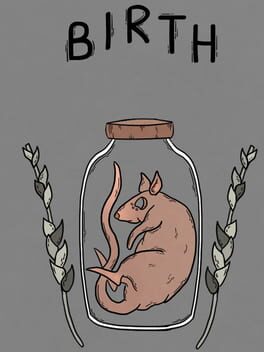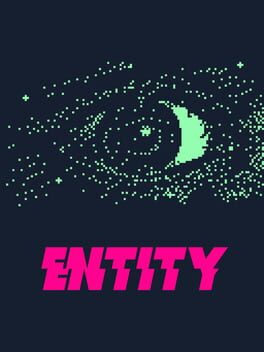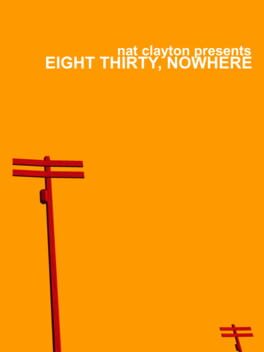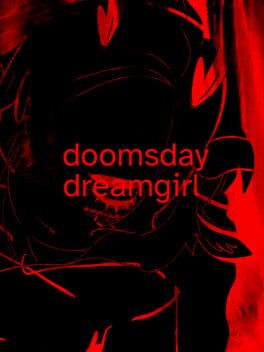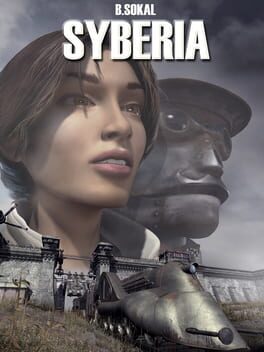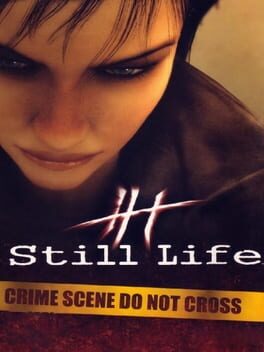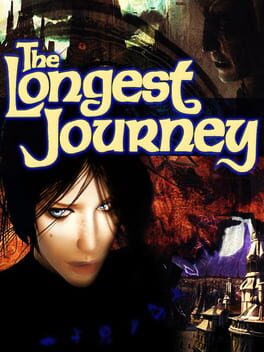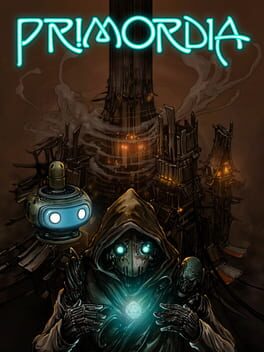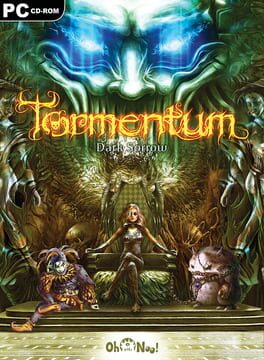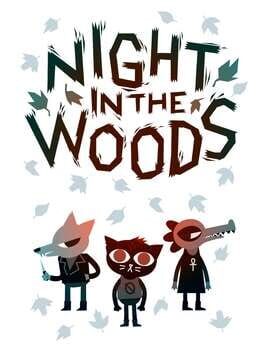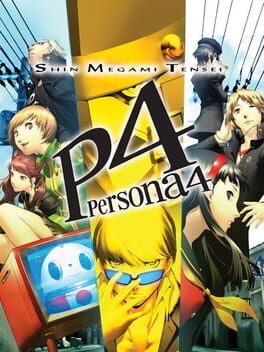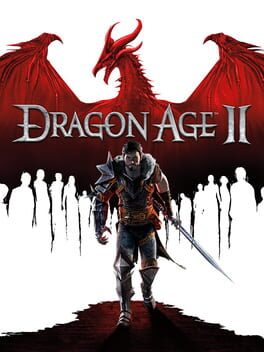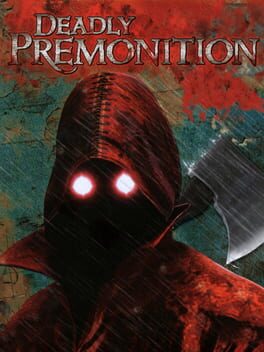GoobleDip
34 reviews liked by GoobleDip
Alan Wake Remastered
2021
When I first played Alan Wake I came out of the game thinking its writing was an absolute mess that debacled what made Max Payne interesting. I thought Sam Lake had gone too much to the extreme of the tropes he was supposed to subvert that he had lost the edge.
A few years passed and a sort of reevaluation happened in my mind; this was not a game about a good writer trapped in its own piece, it was about a bad writer trapped in its own shit. Now, through the remaster I came to a new conclusion that I think relates much more to its author, and it's kind of a middle ground between those two. Alan Wake is just mediocre, but the point is that he is on a deadline.
Alan Wake is not better or worse than any of your bestselling crime authors who fills the bookshelves, he's just a guy suffocated by his own character. This of course relates to the whole Sam Lake - Max Payne thing, with Remedy working on this project for 7 years without knowing exactly what to do and how to make a whole new thing after achieving a cultural hit with both Max Payne games.
Alan Wake is both the tale of a damned common writer and of its own creation, it's nothing new to write about how you can't write, but it's quite hard to do it with enough flair to build a world that can work on this many layers. Alan is a creation by Sam Lake who also created his own hard boiled grime noir detective, but Alan is also being written inside this story by another writer, one who already passed through this cycle of fighting against your creation to get something out of it, which opens a whole new world of possibilities about the meaning and significance of the game itself as a creation.
The brilliance of Alan Wake comes from how its metalayered story resonates with the notion of it being a game itself; its systems working to help Alan and the player through the writing and design, and making collectibles or secrets in the form of ammo crates a coherent helping hand from Thomas Zane (the writer of Alan's Story), Alan itself writing the plot of the game and the whole of Remedy designing the game.
The game manages to build a world of writers and stories that mix up and explicitly (and unashamedly) namedrops a whole lot of writers that might be an inspiration or just a joke. It threads on a line so interesting and dangerous that falls into parody at times, while managing to consistently feel like a rushed yet expertly craft script where everything feels cliché, but builds on itself to metacomment about not only the cliches, but the impossibility to run from them.
And while the game talks about this, it also feels like it missteps on certain decisions on the gameplay and level design. The game is constrained to linear levels that try open up a bit but never manage to do it right, and just let's you travel trough empty spaces that sometimes help to inmerse you in the mood, and most of the times just results in wasted time. This fight inside the game to be two things at the same time, the TV show esque with its own "PREVIOUSLY ON" and musical moments to end each chapter, and a game on its own that wants to open up and give freedom to the player is weirdly idiosyncratic now for the game, but never manages to reconcile in itself. The shooting suffers from the same middle ground, it wants the spectacle but also the horror and tension, and retains the slow-mo epic moments of Max Payne but with a completely broken ammo management that only works on a few ocasions on chapter 4 and 5.
It's a fascinating game all the time, a clear case of a flawed masterpiece that stimulates when it works and when it doesn't. One of the few Twin Peaks inspired games that has manage to actually give enough depth to its message to create a world worth diving into.
A few years passed and a sort of reevaluation happened in my mind; this was not a game about a good writer trapped in its own piece, it was about a bad writer trapped in its own shit. Now, through the remaster I came to a new conclusion that I think relates much more to its author, and it's kind of a middle ground between those two. Alan Wake is just mediocre, but the point is that he is on a deadline.
Alan Wake is not better or worse than any of your bestselling crime authors who fills the bookshelves, he's just a guy suffocated by his own character. This of course relates to the whole Sam Lake - Max Payne thing, with Remedy working on this project for 7 years without knowing exactly what to do and how to make a whole new thing after achieving a cultural hit with both Max Payne games.
Alan Wake is both the tale of a damned common writer and of its own creation, it's nothing new to write about how you can't write, but it's quite hard to do it with enough flair to build a world that can work on this many layers. Alan is a creation by Sam Lake who also created his own hard boiled grime noir detective, but Alan is also being written inside this story by another writer, one who already passed through this cycle of fighting against your creation to get something out of it, which opens a whole new world of possibilities about the meaning and significance of the game itself as a creation.
The brilliance of Alan Wake comes from how its metalayered story resonates with the notion of it being a game itself; its systems working to help Alan and the player through the writing and design, and making collectibles or secrets in the form of ammo crates a coherent helping hand from Thomas Zane (the writer of Alan's Story), Alan itself writing the plot of the game and the whole of Remedy designing the game.
The game manages to build a world of writers and stories that mix up and explicitly (and unashamedly) namedrops a whole lot of writers that might be an inspiration or just a joke. It threads on a line so interesting and dangerous that falls into parody at times, while managing to consistently feel like a rushed yet expertly craft script where everything feels cliché, but builds on itself to metacomment about not only the cliches, but the impossibility to run from them.
And while the game talks about this, it also feels like it missteps on certain decisions on the gameplay and level design. The game is constrained to linear levels that try open up a bit but never manage to do it right, and just let's you travel trough empty spaces that sometimes help to inmerse you in the mood, and most of the times just results in wasted time. This fight inside the game to be two things at the same time, the TV show esque with its own "PREVIOUSLY ON" and musical moments to end each chapter, and a game on its own that wants to open up and give freedom to the player is weirdly idiosyncratic now for the game, but never manages to reconcile in itself. The shooting suffers from the same middle ground, it wants the spectacle but also the horror and tension, and retains the slow-mo epic moments of Max Payne but with a completely broken ammo management that only works on a few ocasions on chapter 4 and 5.
It's a fascinating game all the time, a clear case of a flawed masterpiece that stimulates when it works and when it doesn't. One of the few Twin Peaks inspired games that has manage to actually give enough depth to its message to create a world worth diving into.
Qué final tan más hermoso. No me imagino una mejor forma de cerrar una saga de siete juegos.
El juego en general me parece bueno, no el mejor de los Yakuza, pero lo que tiene es que es una experiencia mucho más contenida. Creo que me gana más la ambición que tienen Yakuza 5 y Yakuza 0, y en ese aspecto me parece un poco desaprovechado que los sistemas secundarios en este juego, aunque están relacionados entre ellos, al juego le da miedo integrarlos con el gameplay loop central, cosa que intenta Yakuza 5 y perfecciona el 0. Sin embargo, este juego tiene momentos tan bonitos, tanto en lo secundario, como en lo principal, que a mi parece lo compensan.
En cierto punto se me hicieron muy cansados los mismos tropos que llevo viendo por tantos juegos, y realmente en algunos momentos aprecié que este sea el "último" juego de la saga. Aunque los Yakuza sigan, no creo que vaya a embarcarme en el resto, al menos por un tiempo. Viendo este juego por lo que es, creo que cumple su propósito.
Los últimos 20 minutos me parecen un gran epílogo a una historia que llevaba cultivándose por más de 10 años.
Gracias por todo.
El juego en general me parece bueno, no el mejor de los Yakuza, pero lo que tiene es que es una experiencia mucho más contenida. Creo que me gana más la ambición que tienen Yakuza 5 y Yakuza 0, y en ese aspecto me parece un poco desaprovechado que los sistemas secundarios en este juego, aunque están relacionados entre ellos, al juego le da miedo integrarlos con el gameplay loop central, cosa que intenta Yakuza 5 y perfecciona el 0. Sin embargo, este juego tiene momentos tan bonitos, tanto en lo secundario, como en lo principal, que a mi parece lo compensan.
En cierto punto se me hicieron muy cansados los mismos tropos que llevo viendo por tantos juegos, y realmente en algunos momentos aprecié que este sea el "último" juego de la saga. Aunque los Yakuza sigan, no creo que vaya a embarcarme en el resto, al menos por un tiempo. Viendo este juego por lo que es, creo que cumple su propósito.
Los últimos 20 minutos me parecen un gran epílogo a una historia que llevaba cultivándose por más de 10 años.
Gracias por todo.
Judgment
2018
Tras siete videojuegos de la saga Like a Dragon, me parecía difícil que un juego más de la saga pudiera revitalizar la serie para mí, y aunque Judgment, el spin-off de detectives, no deja de caer en ciertos tropos que han estado presentes en la saga desde 2005, me sorprende lo bien que logra hacerte entrar en sus particularidades, que aunque no cambian al 100% la fórmula, lo hace lo suficientemente distinto para que sientas que ha cambiado la forma en la que te relacionas con Kamurocho.
La figura del detective es una que es romantizada tal y como lo ha sido la figura del pirata, el mafioso, el yakuza, o el anti-héroe, hasta cierto grado. El detective existe fuera del margen de la sociedad, pero no podría existir sin ella; es la alternativa a un laberinto indescifrable que surge en la urbanidad, donde es fácil cometer crímenes a pleno día en medio de la calle y nadie volteará a ver dos veces porque la información fluye rápido y sin destinatarios claros.
Yagami, nuestro nuevo protagonista, encuentra refugio en el desorden, tanto literal como figurativamente. Expulsado por un sistema que no pudo hacerle justicia ni a él ni a los demás en el nombre de la ley, se ha mezclado entre las sombras para poder seguir operando bajo los principios que le rigen, tratando de desenmascarar una verdad que va más allá de la realidad, o bien, la tuerce para acomodar los intereses de los Prometeos modernos. ¿Qué importan unos cuantos muertos a corto plazo si a la larga puede que sea en beneficio hipotético de millones de seres humanos? Judgment se plantea constantemente preguntas sobre los valores que asociamos a la justicia, al orden, a las leyes y a lo que consideramos que es lo correcto e incorrecto. Como siempre, nunca es fácil discutir cosas así, y menos cuando de por medio igual se tienen que explorar las relaciones entre personajes y meter de por medio algo de relajamiento de tensión en la forma de contenido secundario, pero al menos Judgment hace que uno cuestione más cosas que en el Triple A promedio en la industria del videojuego.
Creo que a Judgment le hace falta todavía alguna pizca adicional para terminar de cuajar todos sus elementos, pero me parece muy encomendable que ya en este primer intento, con un nuevo cast de personajes e intentando renovar las mecánicas de juego, el resultado sea tan consistente. Yagami se siente más débil que Kiryu, tanto, que puede tener heridas que son "permanentes" hasta que vas con un doctor. Yagami tiene más maneras de acceder a las redes que envuelven la ciudad: hace parkour, usa un dron para vigilar a las personas y se mueve a través de sus contactos de teléfono para conseguir lo que quiere. El combate es más ágil y las fuentes de ingreso vienen de puramente hacer el trabajo duro: llegar al fondo de los casos.
Me interesa mucho ver a dónde va Judgment a partir de aquí. Incluso si los rumores de que Lost Judgment puede que sea el último, al menos de momento, la mitad de esta saga spin-off es muy genial. Definitivamente lo recomiendo mucho a gente que le ha gustado la saga Like a Dragon así como a entusiastas de las historias de misterio. Aunque no es la trama más complicada y algunas cosas quedan al aire rumbo al final, como experiencia de juego gana mucho más al tener a Yagami entre tus manos que verlo desenvolverse en pantalla.
La figura del detective es una que es romantizada tal y como lo ha sido la figura del pirata, el mafioso, el yakuza, o el anti-héroe, hasta cierto grado. El detective existe fuera del margen de la sociedad, pero no podría existir sin ella; es la alternativa a un laberinto indescifrable que surge en la urbanidad, donde es fácil cometer crímenes a pleno día en medio de la calle y nadie volteará a ver dos veces porque la información fluye rápido y sin destinatarios claros.
Yagami, nuestro nuevo protagonista, encuentra refugio en el desorden, tanto literal como figurativamente. Expulsado por un sistema que no pudo hacerle justicia ni a él ni a los demás en el nombre de la ley, se ha mezclado entre las sombras para poder seguir operando bajo los principios que le rigen, tratando de desenmascarar una verdad que va más allá de la realidad, o bien, la tuerce para acomodar los intereses de los Prometeos modernos. ¿Qué importan unos cuantos muertos a corto plazo si a la larga puede que sea en beneficio hipotético de millones de seres humanos? Judgment se plantea constantemente preguntas sobre los valores que asociamos a la justicia, al orden, a las leyes y a lo que consideramos que es lo correcto e incorrecto. Como siempre, nunca es fácil discutir cosas así, y menos cuando de por medio igual se tienen que explorar las relaciones entre personajes y meter de por medio algo de relajamiento de tensión en la forma de contenido secundario, pero al menos Judgment hace que uno cuestione más cosas que en el Triple A promedio en la industria del videojuego.
Creo que a Judgment le hace falta todavía alguna pizca adicional para terminar de cuajar todos sus elementos, pero me parece muy encomendable que ya en este primer intento, con un nuevo cast de personajes e intentando renovar las mecánicas de juego, el resultado sea tan consistente. Yagami se siente más débil que Kiryu, tanto, que puede tener heridas que son "permanentes" hasta que vas con un doctor. Yagami tiene más maneras de acceder a las redes que envuelven la ciudad: hace parkour, usa un dron para vigilar a las personas y se mueve a través de sus contactos de teléfono para conseguir lo que quiere. El combate es más ágil y las fuentes de ingreso vienen de puramente hacer el trabajo duro: llegar al fondo de los casos.
Me interesa mucho ver a dónde va Judgment a partir de aquí. Incluso si los rumores de que Lost Judgment puede que sea el último, al menos de momento, la mitad de esta saga spin-off es muy genial. Definitivamente lo recomiendo mucho a gente que le ha gustado la saga Like a Dragon así como a entusiastas de las historias de misterio. Aunque no es la trama más complicada y algunas cosas quedan al aire rumbo al final, como experiencia de juego gana mucho más al tener a Yagami entre tus manos que verlo desenvolverse en pantalla.
Sable
2021
Hay mucho que decir sobre Sable, ya que definitivamente no es un juego común. Aunque porta con gran orgullo sus influencias de The Legend of Zelda en cuanto a jugabilidad y experiencia, el arte de Moebius en cuanto a visuales, y las películas de Ghibli así como Dune en el terreno de las sensibilidades temáticas y narrativas, Sable logra hacer una obra muy única a partir de todo ello, y principalmente se debe a un diseño narrativo tan propositivo y especial.
Encarnas al personaje homónimo, cuyo nombre quiere decir arena: como la que fluye de un lugar a otro sin un paradero final. Todo el juego se contextualiza en un ritual que trata sobre descubrir quién eres, en forma de máscaras dadas al perseguir ciertos objetivos, generando así un juego en el que la forma de alcanzar el objetivo final depende totalmente del jugador a partir de ciertos detonantes, todos completamente opcionales a excepción del tutorial y el final. En este sentido, Sable expande mucho en el diseño abierto que proponía Breath of the Wild en 2017, esta vez haciéndolo más personal, más enfocado y a la vez más abierto de cierta forma. Aunque el final será igual para todos, tendrá una carga significativa diferente para cada jugador, haciendo que en esencia, el final cambie totalmente depende de todo el recorrido anterior.
Como en Breath of the Wild, el mayor talón de Aquiles del juego se presenta en forma de la pérdida de la novedad que se puede volver aparente tras unas cuantas horas. Es claro que Sable le gustaría ser mucho más: poder presentar más máscaras, un escenario más grande, una aventura más extensa. ¿Al final sería un mejor juego? Lo dudo, porque la experiencia seguiría siendo la misma, y finalmente, es el jugador el que decidiría cuándo poner fin al mismo como en el juego que ya se nos presenta, solamente que con más opciones de dónde tirar.
Como un viaje de "coming-of-age" o autodescubrimiento, es probablemente de lo mejor que he visto en un videojuego. En vez de narrarlo, como en un Life is Strange, Sable te deja vivirlo en carne propia, y como diría un amigo que igual lo jugó, aún al final, el juego te dice que probablemente la vida te siga presentando muchas sorpresas y que en cualquier otro momento podrías hacer otro "Gliding" (léase: crisis de la mediana edad). Los diálogos, tan cuidados y hermosos, te van dando pinceladas de los pensamientos ajenos, tan distintos el uno del otro, que en su totalidad te dan distintas formas de entender el mundo, sintetizadas finalmente en las máscaras -personalidades, vivencias- varias que puedes obtener.
Visualmente complementa mucho la utilización de shaders que remiten a los trabajos del aclamado artista francés Moebius, aunque no es únicamente por ello que el juego se puede tildar de hermoso. Sable es bello por su música, por la arquitectura, por el diseño de escenarios, personajes, fauna, flora; por sus personajes, por todo lo que implica el viaje y cómo se ve trasladado a mecánicas muy simples pero donde no se necesita mucho más para transmitir lo que representa el viaje de la vida. Fuera combates, fuera violencia. Solo tenemos que ayudar a los demás, explorar y deambular. Con menos verbos que un Zelda, creo que presenta una experiencia mucho más interesante—¿mejor? no necesariamente, pero definitivamente me interesa mucho qué más puede hacer Shedworks a partir de esta ópera prima.
Finalmente, Sable trata de escoger, o sobre no escoger. Con un lore algo predicible—hasta genérico, nos contextualiza con que (spoilers ligeros), prácticamente la vida en el planeta donde ocurre todo es algo así como un accidente, o como algo que tal vez nunca debió ser. Sable trata sobre la convivencia entre humanos, naturaleza y tecnología, y el cómo todo está en simbiosis en un entorno a la vez arcaico como artificial, pero que en esa naturaleza fabricada, es donde Sable—tú—te has de encontrar. Las condiciones en las que nacemos se nos han dado, y no podemos modificarlas, pero podemos entenderlas y a partir de ahí saber cómo podemos encajar en este mundo y seguir creciendo.
Sable es una grandiosa experiencia. Uno de los mejores videojuegos que he jugado en memoria reciente y uno que no dudo en recomendar a absolutamente todo el mundo para escuchar sus experiencias tan únicas que seguro tendrán. No terminé de explorar absolutamente todo lo que el mundo tenía que dar, pero en las 12 horas que pasé en Midden, siento que extraje lo que el juego tenía que darme, y tal vez al final, como dicen en el epílogo del juego, no me siento más sabio o más inteligente, pero sí me hizo reflexionar sobre mi lugar en este mundo tan grande, y a la vez, tan pequeño en el que vivimos todos.
Encarnas al personaje homónimo, cuyo nombre quiere decir arena: como la que fluye de un lugar a otro sin un paradero final. Todo el juego se contextualiza en un ritual que trata sobre descubrir quién eres, en forma de máscaras dadas al perseguir ciertos objetivos, generando así un juego en el que la forma de alcanzar el objetivo final depende totalmente del jugador a partir de ciertos detonantes, todos completamente opcionales a excepción del tutorial y el final. En este sentido, Sable expande mucho en el diseño abierto que proponía Breath of the Wild en 2017, esta vez haciéndolo más personal, más enfocado y a la vez más abierto de cierta forma. Aunque el final será igual para todos, tendrá una carga significativa diferente para cada jugador, haciendo que en esencia, el final cambie totalmente depende de todo el recorrido anterior.
Como en Breath of the Wild, el mayor talón de Aquiles del juego se presenta en forma de la pérdida de la novedad que se puede volver aparente tras unas cuantas horas. Es claro que Sable le gustaría ser mucho más: poder presentar más máscaras, un escenario más grande, una aventura más extensa. ¿Al final sería un mejor juego? Lo dudo, porque la experiencia seguiría siendo la misma, y finalmente, es el jugador el que decidiría cuándo poner fin al mismo como en el juego que ya se nos presenta, solamente que con más opciones de dónde tirar.
Como un viaje de "coming-of-age" o autodescubrimiento, es probablemente de lo mejor que he visto en un videojuego. En vez de narrarlo, como en un Life is Strange, Sable te deja vivirlo en carne propia, y como diría un amigo que igual lo jugó, aún al final, el juego te dice que probablemente la vida te siga presentando muchas sorpresas y que en cualquier otro momento podrías hacer otro "Gliding" (léase: crisis de la mediana edad). Los diálogos, tan cuidados y hermosos, te van dando pinceladas de los pensamientos ajenos, tan distintos el uno del otro, que en su totalidad te dan distintas formas de entender el mundo, sintetizadas finalmente en las máscaras -personalidades, vivencias- varias que puedes obtener.
Visualmente complementa mucho la utilización de shaders que remiten a los trabajos del aclamado artista francés Moebius, aunque no es únicamente por ello que el juego se puede tildar de hermoso. Sable es bello por su música, por la arquitectura, por el diseño de escenarios, personajes, fauna, flora; por sus personajes, por todo lo que implica el viaje y cómo se ve trasladado a mecánicas muy simples pero donde no se necesita mucho más para transmitir lo que representa el viaje de la vida. Fuera combates, fuera violencia. Solo tenemos que ayudar a los demás, explorar y deambular. Con menos verbos que un Zelda, creo que presenta una experiencia mucho más interesante—¿mejor? no necesariamente, pero definitivamente me interesa mucho qué más puede hacer Shedworks a partir de esta ópera prima.
Finalmente, Sable trata de escoger, o sobre no escoger. Con un lore algo predicible—hasta genérico, nos contextualiza con que (spoilers ligeros), prácticamente la vida en el planeta donde ocurre todo es algo así como un accidente, o como algo que tal vez nunca debió ser. Sable trata sobre la convivencia entre humanos, naturaleza y tecnología, y el cómo todo está en simbiosis en un entorno a la vez arcaico como artificial, pero que en esa naturaleza fabricada, es donde Sable—tú—te has de encontrar. Las condiciones en las que nacemos se nos han dado, y no podemos modificarlas, pero podemos entenderlas y a partir de ahí saber cómo podemos encajar en este mundo y seguir creciendo.
Sable es una grandiosa experiencia. Uno de los mejores videojuegos que he jugado en memoria reciente y uno que no dudo en recomendar a absolutamente todo el mundo para escuchar sus experiencias tan únicas que seguro tendrán. No terminé de explorar absolutamente todo lo que el mundo tenía que dar, pero en las 12 horas que pasé en Midden, siento que extraje lo que el juego tenía que darme, y tal vez al final, como dicen en el epílogo del juego, no me siento más sabio o más inteligente, pero sí me hizo reflexionar sobre mi lugar en este mundo tan grande, y a la vez, tan pequeño en el que vivimos todos.
Before Your Eyes
2021
A pretty cathartic game. It's just amazing how every time I lose faith in the average videogame, an indie darling like this comes along to remind me the power of expression a game can have. Though it crashed on me like 3 times, it didn't stop me from really enjoying the story and how it is told (yeah, through blinks).
It really amazes me how this game features a no-blink mode (for those who don't have a camera) since it practically makes up for 90% of the experience, in my opinion. At least the final scene (which can pretty easily enter into my personal top 10 moments in games) wouldn't really hit hard without it.
There are some moments that didn't really convince me, but at the end I was crying a river over what this game is telling, and that, to me, is entirely worth it.
Please play it with a camera.
Oh, and please don't refund it just because it's shorter than 2 hours. Let's keep supporting these kind of projects.
It really amazes me how this game features a no-blink mode (for those who don't have a camera) since it practically makes up for 90% of the experience, in my opinion. At least the final scene (which can pretty easily enter into my personal top 10 moments in games) wouldn't really hit hard without it.
There are some moments that didn't really convince me, but at the end I was crying a river over what this game is telling, and that, to me, is entirely worth it.
Please play it with a camera.
Oh, and please don't refund it just because it's shorter than 2 hours. Let's keep supporting these kind of projects.
Yakuza
2005
After beating all of the Kiryu saga and going back to its roots playing Yakuza (thanks to the restoration patch) I can say it's quite an experience. It's no surprise that the Kiwami remakes are not just poor reimaginations of the PS2 era but barebone games on themselves, only interesting as proofs of concept for certain gameplay gimmicks that in some cases are nice and harmless (leveling on Kiwami 2) and in others can be fatal blows to pace and overall consistency (Majima Everywhere).
It is while playing Yakuza this time that I made peace with how bad I received what I thought was a poor beginning with certain good ideas and moments; this first game is flawed and poorly written at times but it echoes in a way that Kiwami cannot even begin to grasp. What here is moody there is bland, the tries and failures of an innovative and risky endeavour such as Nagoshi and his team did with this monstrous project is lack of consistency and polish on the 7th mainline game of an established franchise. I'm not gonna keep comparing even if I thought before playing this that I would. Yakuza is so much more.
Kamurocho has character, a character I didn't see fully formed until Yakuza 4 is its own beast here, a city brimmed with danger and threats to Kiryu that manages to be absolutely ridiculous while keeping a tone. In fact this is much of what happens with this game on every single level. The idea of the two sides of Yakuza is somehow a modern construct that has been developing, that's clear, and in this first approach without added "funny bits" Yakuza presents itself as a much more gruesome and sad game without going to the places the franchise has risked to go in the latest games. The plot doesn't break grounds and makes mistakes on the most stupid places (why the fuck Haruka goes to Shangri La?), having too much for its own good, closing arcs that haven't been developed enough, killing characters that could make much more alive in future games... But in the end, although flawed, it all comes together. The bullshit is minor, the mysoginy is a load of crap but it got a tiny bit better in future games (hope it gets inexistent at some point, please, Yokoyama), and the poorly built scenes make sense for the arcs. The plot is flimsy but Kiryu manages to make it not crush, as he always does.
See the beginning of what I consider the best main character in this medium as it was meant to be makes even clearer to me why he has been a totem for this franchise every single time.
Kiryu makes everything work.
His personality is as firm as the game needs to be, never breaks enough, and his idealism is always the point of conjunction for characters and plot itself to connect making the themes resonate above the mistakes, the sides coalesce; Kiryu is Yakuza at its core. Kiryu is so much Yakuza that it has permeated to the point the franchise can continue without him because his way of connecting with reality is embodied on every single aspect of this franchise. Every game tells a tale about him because Kiryu is the embodiment of the core ideals of what Ryu Ga Gotoku stands and believes.
Yakuza is colder, faulty, feels rushed and risky, unfocused but heartful, it is a first try right in its core. This game talks about a particular Kamurocho, one full of bands and people, one that Kiryu doesn't feel his own. Weird and new, closed, in need of help. Kamurocho is always a reflection of the spirit of times, of the game itself and his aspirations.
This tries so much it fails at times, but it tries its best. It's always better to fight and lose on your own terms than to not even try. Nagoshi succeeded even with failures, and this game can be a masterpiece and a disaster on spans of 10 minutes. And even if the plot trembles and the combat pales I just needed a walk through the city. To hear the music, to see the beauty and have the realization that this, right here, is everything I love; this is the Kamurocho I know from memory, the one I've visited through the years. It's a faithful companion I've seen shackled, alive most times and dead a few, but a city I, as Kiryu, can't stop coming back even with its share of problems.
I love Kiryu and Haruka to death, I love the vibes, and the final boss fight makes me chill every single time. I look at the screen and sometimes just smile thinking about the journeys, the incredible moments I have gone through looking at the back of the most iconic jacket in gaming, and looking to the sky, to the Millennium Tower, and glancing at the sheer brilliance of everything on display here. A building that turns always the main character without pretending to, a tall and threatening presence that every single time means death and loss, but doesn't want any of that. I look at the tower that wasn't here 10 years ago and now stands at the center, always the center, and think about this city that made me cry and laugh so many times I managed to discover more about myself and try my best to keep fighting. And that's exactly what Yakuza is about. What Kiryu stands for. What Kamurocho has always meant to me.
Kiwami's was dead, this is alive. Not much more to say.
It is while playing Yakuza this time that I made peace with how bad I received what I thought was a poor beginning with certain good ideas and moments; this first game is flawed and poorly written at times but it echoes in a way that Kiwami cannot even begin to grasp. What here is moody there is bland, the tries and failures of an innovative and risky endeavour such as Nagoshi and his team did with this monstrous project is lack of consistency and polish on the 7th mainline game of an established franchise. I'm not gonna keep comparing even if I thought before playing this that I would. Yakuza is so much more.
Kamurocho has character, a character I didn't see fully formed until Yakuza 4 is its own beast here, a city brimmed with danger and threats to Kiryu that manages to be absolutely ridiculous while keeping a tone. In fact this is much of what happens with this game on every single level. The idea of the two sides of Yakuza is somehow a modern construct that has been developing, that's clear, and in this first approach without added "funny bits" Yakuza presents itself as a much more gruesome and sad game without going to the places the franchise has risked to go in the latest games. The plot doesn't break grounds and makes mistakes on the most stupid places (why the fuck Haruka goes to Shangri La?), having too much for its own good, closing arcs that haven't been developed enough, killing characters that could make much more alive in future games... But in the end, although flawed, it all comes together. The bullshit is minor, the mysoginy is a load of crap but it got a tiny bit better in future games (hope it gets inexistent at some point, please, Yokoyama), and the poorly built scenes make sense for the arcs. The plot is flimsy but Kiryu manages to make it not crush, as he always does.
See the beginning of what I consider the best main character in this medium as it was meant to be makes even clearer to me why he has been a totem for this franchise every single time.
Kiryu makes everything work.
His personality is as firm as the game needs to be, never breaks enough, and his idealism is always the point of conjunction for characters and plot itself to connect making the themes resonate above the mistakes, the sides coalesce; Kiryu is Yakuza at its core. Kiryu is so much Yakuza that it has permeated to the point the franchise can continue without him because his way of connecting with reality is embodied on every single aspect of this franchise. Every game tells a tale about him because Kiryu is the embodiment of the core ideals of what Ryu Ga Gotoku stands and believes.
Yakuza is colder, faulty, feels rushed and risky, unfocused but heartful, it is a first try right in its core. This game talks about a particular Kamurocho, one full of bands and people, one that Kiryu doesn't feel his own. Weird and new, closed, in need of help. Kamurocho is always a reflection of the spirit of times, of the game itself and his aspirations.
This tries so much it fails at times, but it tries its best. It's always better to fight and lose on your own terms than to not even try. Nagoshi succeeded even with failures, and this game can be a masterpiece and a disaster on spans of 10 minutes. And even if the plot trembles and the combat pales I just needed a walk through the city. To hear the music, to see the beauty and have the realization that this, right here, is everything I love; this is the Kamurocho I know from memory, the one I've visited through the years. It's a faithful companion I've seen shackled, alive most times and dead a few, but a city I, as Kiryu, can't stop coming back even with its share of problems.
I love Kiryu and Haruka to death, I love the vibes, and the final boss fight makes me chill every single time. I look at the screen and sometimes just smile thinking about the journeys, the incredible moments I have gone through looking at the back of the most iconic jacket in gaming, and looking to the sky, to the Millennium Tower, and glancing at the sheer brilliance of everything on display here. A building that turns always the main character without pretending to, a tall and threatening presence that every single time means death and loss, but doesn't want any of that. I look at the tower that wasn't here 10 years ago and now stands at the center, always the center, and think about this city that made me cry and laugh so many times I managed to discover more about myself and try my best to keep fighting. And that's exactly what Yakuza is about. What Kiryu stands for. What Kamurocho has always meant to me.
Kiwami's was dead, this is alive. Not much more to say.
Trek to Yomi
2022
Trek To Yomi is the kind of game I either love or despise, no middle ground. The decisions made here to turn this mediocre 2D slash game into an artistic experience with its shot composition, filters and coarse reference to classic Samurai films are rather poor and make this seemingly harmless indie game into one of the practices I hate the most in modern entertainment; the stupid homage.
This game doesn't try to get what Kurosawa says in his Samurai films, let alone his style beyond black and white and grain. The magic of Yojimbo, Seven Samurai or RAN is never present here, only able to be thought of while playing this by the sheer abundance of comments made by the press and the users. Even with its soul not being there it tries so hard to remind you of what you may think this movies were. There is love here, the shots made with the fixed cameras on gameplay are a few times astonishing and they let the journey flow at the beginning; and the voice acting, while being held back by a barebones script, is pretty on point and works to sell you on part of the atmosphere. If this just were a bad homage with some love and a bunch of good shots put here and there this may had been a serviceable poor game that tries too hard but at least has basic but fun level design and good visuals.
But the combat.
I'm not gonna rant much more because I don't like to discredit something made with care by a team, and I feel much more at ease critizing things like The Avengers game than an indie project built, I'm sure, with the best possible intentions; but this combat can't make the cut. It doesn't feel good at all, it's clunky, unresponsive, on hard the game turns at times into an spiral of almost instant deaths, the parry is awful (the game doesn't even count it as it should a lot of times, and you end up dying while listening to the sound made by the swords clashing). I don't get why this game based almost entirely gameplay wise on combat encounters has some of the worst sword combat I've experienced on a not amateur game; it's just bad.
Flying Wild Hog is better than this, and the tiny bit I played of Shadow Warrior 3 makes it imposible to me to understand how this was released in this state. Let's hope the next thing they do has the same level of focus but on the right places.
This game doesn't try to get what Kurosawa says in his Samurai films, let alone his style beyond black and white and grain. The magic of Yojimbo, Seven Samurai or RAN is never present here, only able to be thought of while playing this by the sheer abundance of comments made by the press and the users. Even with its soul not being there it tries so hard to remind you of what you may think this movies were. There is love here, the shots made with the fixed cameras on gameplay are a few times astonishing and they let the journey flow at the beginning; and the voice acting, while being held back by a barebones script, is pretty on point and works to sell you on part of the atmosphere. If this just were a bad homage with some love and a bunch of good shots put here and there this may had been a serviceable poor game that tries too hard but at least has basic but fun level design and good visuals.
But the combat.
I'm not gonna rant much more because I don't like to discredit something made with care by a team, and I feel much more at ease critizing things like The Avengers game than an indie project built, I'm sure, with the best possible intentions; but this combat can't make the cut. It doesn't feel good at all, it's clunky, unresponsive, on hard the game turns at times into an spiral of almost instant deaths, the parry is awful (the game doesn't even count it as it should a lot of times, and you end up dying while listening to the sound made by the swords clashing). I don't get why this game based almost entirely gameplay wise on combat encounters has some of the worst sword combat I've experienced on a not amateur game; it's just bad.
Flying Wild Hog is better than this, and the tiny bit I played of Shadow Warrior 3 makes it imposible to me to understand how this was released in this state. Let's hope the next thing they do has the same level of focus but on the right places.
Sable
2021
I love games designed all around exploration, especially when they don’t have any combat like Outer Wilds. Sable is a strong effort in this genre, with no other goal than to freely explore a compelling desert world filled with ruined sci-fi ships and structures.
I think a well designed open world is one where it’s enjoyable to just go and see what’s out there, and Sable does this well with plenty of defined areas and landmarks worth exploring. Being able to climb and glide anywhere also made it easy to scale whatever towered over you.
It’s not a huge map and much of it’s empty space, but I enjoyed exploring it more than many others. It largely has to do with its atmosphere, crossing distances on the hoverbike felt meditative in a way, just you traveling on your lonesome in a barren but atmospheric world.
Another positive is the art style, the cel shaded environments look really cool and suit the world they were going for. Characters are also intentionally animated in a lower frame rate, which can be jarring but also makes it more distinct. The music’s also very good.
Sadly though, there’s some major flaws particularly with its performance. Riding on the hoverbike usually causes constant FPS drops which can be headache inducing at times combined with the visuals, and it tends to get worse in some areas than others. Others include the audio stuttering, the camera’s pretty buggy, and climbing can be a bit janky. Aside for performance the quests themselves are not very interesting, usually involving fetching items for NPCs and more served as an excuse to explore the world. This is the case for all platforms I believe, and as of now there's no indication these issues will be patched anymore. Given what Sable offers I could put up with it, but it's a shame nonetheless
I think a well designed open world is one where it’s enjoyable to just go and see what’s out there, and Sable does this well with plenty of defined areas and landmarks worth exploring. Being able to climb and glide anywhere also made it easy to scale whatever towered over you.
It’s not a huge map and much of it’s empty space, but I enjoyed exploring it more than many others. It largely has to do with its atmosphere, crossing distances on the hoverbike felt meditative in a way, just you traveling on your lonesome in a barren but atmospheric world.
Another positive is the art style, the cel shaded environments look really cool and suit the world they were going for. Characters are also intentionally animated in a lower frame rate, which can be jarring but also makes it more distinct. The music’s also very good.
Sadly though, there’s some major flaws particularly with its performance. Riding on the hoverbike usually causes constant FPS drops which can be headache inducing at times combined with the visuals, and it tends to get worse in some areas than others. Others include the audio stuttering, the camera’s pretty buggy, and climbing can be a bit janky. Aside for performance the quests themselves are not very interesting, usually involving fetching items for NPCs and more served as an excuse to explore the world. This is the case for all platforms I believe, and as of now there's no indication these issues will be patched anymore. Given what Sable offers I could put up with it, but it's a shame nonetheless
Sifu
2022
A solid, if somewhat unpolished brawler, Sifu takes familiar cues from various contemporary melee combat systems and combines them with arcade-like elements.
Within the first hour of Sifu, it's hard to deny how brutal it can get, with enemies actually making use of their numbers advantage rather than attacking you one at a time, and the omission of visual cues that are usually present in similar modern melee-based games. The death mechanic may also give an impression it's something you have to grind through and unlock things so you can stand a chance through each run, but if anything Sifu actually does reward the player more by being observant and patient rather than just grinding for XP unlocks.
The unlockable skills are there to serve more as extra options to open up your playstyle rather than a necessity to get through the game. They will help a fair bit, and prioritizing certain upgrades give a notable effect, but you actually can get farther by playing it safe and focusing on the game's flow and mechanics, in particular, the 'structure gauge'. The closest familiar comparison to this is the 'posture gauge' from Sekiro, and it does work similarly here. Attack and deflect an enemy's attack enough times, you build up the posture gauge to go for an instant execution.
The rest of the challenge comes in the form of getting familiar with each enemy's attack patterns and animations and knowing when to use the appropriate defensive measures. Your tools for defense come in the form of blocking which is safe but costs you your own structure gauge, parries which is a somewhat riskier but more aggressive approach as this continuously builds up the enemy's structure gauge, and dodging which you can do high and low dodges. Dodging, in particular, can be both the safest and riskiest defense at the same time, as successful executions don't cost you structure, but the wrong dodge can make you eat an attack directly.
The game isn't all defense of course, especially with the aforementioned element that enemies actually do take advantage of the fact they outnumber you in each encounter. They will flank you and catch you off guard if you tunnel vision on a single one. Thus it's important to balance out defense with aggression. Prioritizing certain enemy types, taking the first opportunity to attack, using weapons, and so on.
Sifu is also stylish and is good at making you feel like you're playing through a kung fu flick. The larger and more open areas, in particular, are also great in emulating the martial arts film the game pays a lot of homage to, as the flow of these parts lets you vault through various furniture and make use of weapons as you try to whittle down groups of foes. There are also neat little details that extend as gameplay mechanics too, with enemies being able to attack each other, giving you more incentive in dodging their attacks.
Unfortunately, not all of its presentation works in its favor, for one the camera actually manages to be a nuisance in certain areas, obscuring enemies off-screen and prompting you to get hit by a thrown bottle you have no way of anticipating for example. There are also moments where you're forced into really tight spaces as well as darker areas where it's harder to observe your surroundings.
This extends as well to the responsiveness and playability of the game, with Sifu taking priority in blending its animations realistically rather than consistent feedback. There are moments, especially with boss fights where deflecting and dodging just feels off, with a noticeable delay to your actions. They're not bad to the point of breaking the game, but they can get really annoying and add an unnecessary learning curve to adjust to.
Speaking of boss fights, they're also not the best in terms of design. Each boss has two phases, and each phase has a set of attacks they constantly rotate with depending on their health and distance. They're fine on paper, but the way they're executed makes them feel padded out and more annoying to fight over time. Figuring them out is fun, doing them over and over without variation for a few minutes straight as you build up the necessary gauge isn't. The game would have benefitted more from this either by giving more attack variations or lessening the necessary amount of attacks you need to defeat each boss.
The often advertised mechanic of dying and aging also feels very underwhelming. The fact that it only adjusts your health to be lower and damage to be higher is limiting by itself, but those things don't even feel significant either in actual gameplay. Especially in consideration that as you progress through each stage, enemies deal more damage and also take longer to defeat both through health and structure gauge, thus canceling out really any potential benefit or change of playstyle through the aging. I feel like this mechanic could have worked better with exclusive moves or upgrades through certain ages for example.
Despite its shortcomings, Sifu does provide a challenging yet rewarding experience and is a good example of how you can mix arcade-style difficulty and progression with modern gameplay mechanics.
Plus it's hard to not enjoy a game that has a crotch punch.
Within the first hour of Sifu, it's hard to deny how brutal it can get, with enemies actually making use of their numbers advantage rather than attacking you one at a time, and the omission of visual cues that are usually present in similar modern melee-based games. The death mechanic may also give an impression it's something you have to grind through and unlock things so you can stand a chance through each run, but if anything Sifu actually does reward the player more by being observant and patient rather than just grinding for XP unlocks.
The unlockable skills are there to serve more as extra options to open up your playstyle rather than a necessity to get through the game. They will help a fair bit, and prioritizing certain upgrades give a notable effect, but you actually can get farther by playing it safe and focusing on the game's flow and mechanics, in particular, the 'structure gauge'. The closest familiar comparison to this is the 'posture gauge' from Sekiro, and it does work similarly here. Attack and deflect an enemy's attack enough times, you build up the posture gauge to go for an instant execution.
The rest of the challenge comes in the form of getting familiar with each enemy's attack patterns and animations and knowing when to use the appropriate defensive measures. Your tools for defense come in the form of blocking which is safe but costs you your own structure gauge, parries which is a somewhat riskier but more aggressive approach as this continuously builds up the enemy's structure gauge, and dodging which you can do high and low dodges. Dodging, in particular, can be both the safest and riskiest defense at the same time, as successful executions don't cost you structure, but the wrong dodge can make you eat an attack directly.
The game isn't all defense of course, especially with the aforementioned element that enemies actually do take advantage of the fact they outnumber you in each encounter. They will flank you and catch you off guard if you tunnel vision on a single one. Thus it's important to balance out defense with aggression. Prioritizing certain enemy types, taking the first opportunity to attack, using weapons, and so on.
Sifu is also stylish and is good at making you feel like you're playing through a kung fu flick. The larger and more open areas, in particular, are also great in emulating the martial arts film the game pays a lot of homage to, as the flow of these parts lets you vault through various furniture and make use of weapons as you try to whittle down groups of foes. There are also neat little details that extend as gameplay mechanics too, with enemies being able to attack each other, giving you more incentive in dodging their attacks.
Unfortunately, not all of its presentation works in its favor, for one the camera actually manages to be a nuisance in certain areas, obscuring enemies off-screen and prompting you to get hit by a thrown bottle you have no way of anticipating for example. There are also moments where you're forced into really tight spaces as well as darker areas where it's harder to observe your surroundings.
This extends as well to the responsiveness and playability of the game, with Sifu taking priority in blending its animations realistically rather than consistent feedback. There are moments, especially with boss fights where deflecting and dodging just feels off, with a noticeable delay to your actions. They're not bad to the point of breaking the game, but they can get really annoying and add an unnecessary learning curve to adjust to.
Speaking of boss fights, they're also not the best in terms of design. Each boss has two phases, and each phase has a set of attacks they constantly rotate with depending on their health and distance. They're fine on paper, but the way they're executed makes them feel padded out and more annoying to fight over time. Figuring them out is fun, doing them over and over without variation for a few minutes straight as you build up the necessary gauge isn't. The game would have benefitted more from this either by giving more attack variations or lessening the necessary amount of attacks you need to defeat each boss.
The often advertised mechanic of dying and aging also feels very underwhelming. The fact that it only adjusts your health to be lower and damage to be higher is limiting by itself, but those things don't even feel significant either in actual gameplay. Especially in consideration that as you progress through each stage, enemies deal more damage and also take longer to defeat both through health and structure gauge, thus canceling out really any potential benefit or change of playstyle through the aging. I feel like this mechanic could have worked better with exclusive moves or upgrades through certain ages for example.
Despite its shortcomings, Sifu does provide a challenging yet rewarding experience and is a good example of how you can mix arcade-style difficulty and progression with modern gameplay mechanics.
Plus it's hard to not enjoy a game that has a crotch punch.
Sifu
2022
6 lists liked by GoobleDip
by GerardoDeRivia |
11 Games
by StoneOceans |
85 Games
by AlexaLily |
78 Games
by Woodaba |
18 Games
